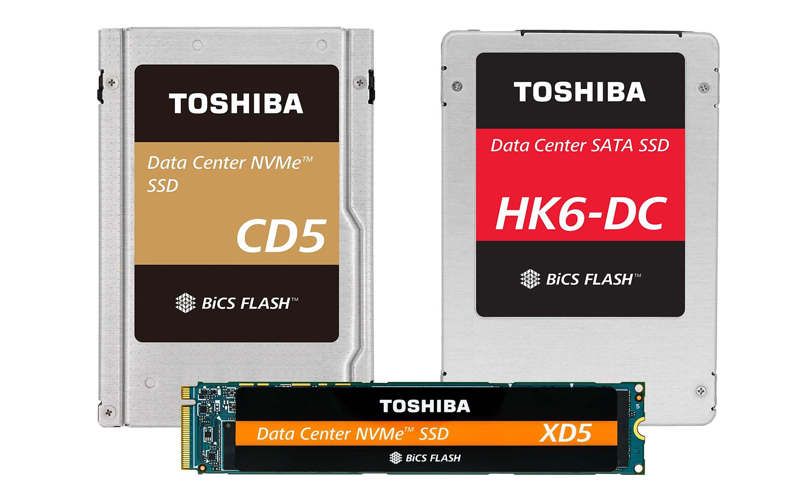Toshiba has added three new families of SATA, and NVMe SSD drives. That is based on its advanced 64-layer NAND BiCS memory technology, So, that allows achieving a high storage density to lower the final product price.
New Toshiba discs with 64-layer NAND BiCS memory for the professional sector
Toshiba SSD CD5, XD5, and HK6-DC Specifications
These new Toshiba products are SSD CD5, XD5, and HK6-DC. Also, these are available in multiple formats. Also, these SSDs are designed to provide infrastructure managers with the performance they need to excel under the demanding workload profiles of data centers while offering lower operating power for intensive reading applications. That includes NoSQL databases, Big Data Analytics, and transmission media.
The CD5 series comes with capacities ranging from 960 GB to 7.68TB in a U.2 form factor. The performance of these units in random 4K operations amounts to 500,000 and 35,000 IOPS in readings and writes. Also, the sequential speed reaches up to 3,140 MB/s and 1,980 MB/s. Also, that all comes with a power range of 9-14W.
We now turn to see the XD5 series. That uses a form factor M.2 22110 and comes in capacities of up to 3.84TB. So, that offers performance up to 2,600 MB/s and 890 MB/s in sequential reads and writes with a power of 7 W. And these units are designed to boost low latency and performance consistency in high-read workloads and are specifically targeted at the Open Compute Platform (OCP).
Finally, the HK6-DC series comes in a SATA III 6 Gb / s format and is available in capacities of 960 GB, 1.92TB, and 3.84TB. It is promoted as a fast readout SSD and optimized for low latency, which can deliver up to 85,000 random read IOPS, as well as up to 550MB / s in sequential read performance.
All these discs have protection against loss of energy and support of cryptographic erasure. Also, the new data center SSDs take advantage of 256-bit AES data encryption. That is to encrypt data securely, without the impact on performance associated with software-based solutions.
